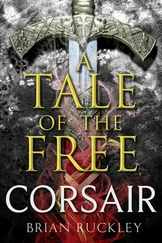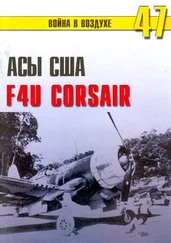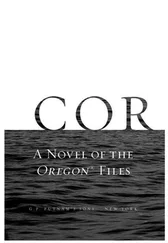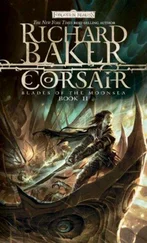Hector rose and shook the sand from his clothing. ‘Wait here and keep a good lookout. I’m going down to check the body of the Labdessah. Maybe he had some food on him, and a waterskin.’
But when he reached the corpse, he found that the man had carried only a dagger strapped to his forearm, and a small leather purse on a cord around his neck. The purse contained a handful of worn copper coins. Nearby lay two spears which had fallen to the ground when he was shot. His food and waterskin must have been on his camel, which had bolted. The effort of plodding back up the dune made Hector realise just how weak and thirsty he had become. He felt slightly dizzy by the time he rejoined the others, and was glad to drop down on the sand and rest. ‘Nothing,’ he reported. ‘We’ll have to spend the night here, and hope that Ibrahim shows up in the morning. It’s sensible to stay where he knows to find us.’
After sunset the temperature began to fall rapidly. The four men shivered in their light clothing, huddling together trying to share their warmth. They took it in turns to keep watch, though none of them slept for more than a few moments. They heard scuffling noises from below, and guessed that a sort of scavenger was investigating the corpse of the Labdessah. Fearful that the dead man’s companions might return, they jumped at shadows. Bourdon caught a glimpse of a flitting movement in the darkness. He raised his musket and was about to take a shot when the shadow revealed itself as a tiny fox-like animal with huge ears which gazed at them for a second, then turned and vanished.
Hector was on watch when the red-orange glow of another fiery sunrise began to light up the horizon. Below him was a remarkable sight. A blanket of white mist, no more than a few feet deep, had silently occupied the sand valley in the night. He marvelled that the vapour could form in such an arid land, and licked his cracked lips at the thought of the moisture, so close yet unobtainable. His gaze travelled down the length of the valley and there, some distance away, were the heads and shoulders of five men coming towards him. They must have been on camels for they swayed back and forth with the characteristic movement of their mounts. Yet the animals themselves were invisible, submerged within the layer of white mist. Briefly he was reminded of the day when Turgut Reis’s galley had glided through the sea fret of Sardinia, and the sailor Dunton had told him that the lookouts at the masthead could be in clear sunshine above the fog. Now, even as he watched, the mist began to ebb. It shrank down, thinner and thinner, and the corpse of the dead Labdessah appeared like a dark rock when the tide receded. Hector came to his senses. He had been so cold that his thoughts were sluggish. He nudged Dan with his foot. ‘Riders,’ he said softly. ‘Coming our way. Stay low. I’ll let you know what’s happening.’
As he watched, the camel riders continued their approach. They were in single file, with one man some distance in front. Presumably he was their scout. Something about the way they rode told Hector that they were keeping a watchful lookout. ‘Slide back over the edge of the dune, and keep out of sight,’ he warned the others. ‘They look like Labdessah, five of them. Maybe they’ve not seen us and will ride by.’ All five riders were dressed in the loose blue garments of Tooarick, and the black cloths wrapped around their heads gave them a sinister appearance. The only difference among them that Hector could see was that their leader rode a particularly fine-looking camel. Its bridle and trappings were hung with red and blue decorations.
‘They’ll be within musket range very soon,’ he said softly. ‘Get your guns ready. I’ll give the word if we need to fire on them. They’re still in single file. Karp, you take the second man in line. Jacques, the third. Dan, your target is the same as mine. The leader.’
‘Why let them pass?’ hissed Bourdon. ‘They’ll be carrying water, and without water we will die out here.’
‘Let’s wait and see,’ Hector answered.
The main group of riders had halted. They were still out of musket range. Only their leader had continued forward. He was heading directly for the corpse of the Labdessah, clearly visible among the last wisps of mist. When he reached the corpse, he reined in his camel and looked down. Then he dismounted and walked across to the body. Leaning over, he began to search through the dead man’s clothes. He was plundering the corpse. Turning about, he tied a hobble to his camel, hitched up the hem of his gown with one hand, and began to climb the dune. He was heading straight for where Hector lay.
‘What’s going on?’ It was Bourdon. He had crawled up beside Hector and was peering down. When he saw the advancing Tooarick he pushed forward his musket, cocked the weapon, and began to take aim. ‘Don’t shoot,’ warned Hector. ‘He knows we are here. He wants something.’ He had noticed that the man had left his musket strapped to his camel.
Thirty paces below them the man stopped. Reaching up, he unwound the black cloth which covered his lower face and called out to them. ‘Peace be with you. I am Sidi Hasem of the Wadelim.’
‘Greetings,’ Hector called back. ‘We are travellers.’
‘You killed this dog of a Labdessah?’
‘We did.’
‘Then I welcome you. The enemy of my enemy is my friend.’
Hector rose to his feet.
‘What are you doing? He’s Tooarick!’ blurted Jacques anxiously.
‘Keep me covered. He wants to talk. He’s our best chance of getting food and water.’
Hector slithered down the slope until he was a few paces from the stranger. The man who called himself Sidi Hasem had a sharp, narrow face. His skin was the dark olive of the desert dwellers, and Hector guessed he was about forty years old. His eyes were deep-set, almost black, and they regarded the Irishman calmly.
‘You are from the coffle that passed this way two days ago?’ he asked.
‘Yes. We are waiting for our friends to come back to collect us.’
‘Let me show you something,’ said the Tooarick. ‘Your companions up there can come down if they want. They will not be harmed. Or they can stay where they are, if they wish. We know that you can defend yourselves.’ He glanced meaningfully at the musket that Hector carried. ‘It will be easier if you left that here. We need to travel only a short distance and will be back very quickly.’
Sidi Hasem’s self-assurance was persuasive. Hector found himself trusting the man. Turning towards Dan and the others, he shouted to them that he would be back shortly. Then he followed the Tooarick to where his camel was kneeeling. The camel saddle, Hector noted, was different from the plain pack-saddles he had ridden with the coffle. It had two elegant horns which curved upward like the wings of a butterfly. Hasem unhobbled the animal and gestured for Hector to climb up behind the saddle and hold on. The Tooarick then settled himself in his seat and prodded the camel with his goad so that it rose to its feet with a great belch. A moment later Hector found himself clinging on tightly as the animal moved off at a rapid trot.
Hector could see little beyond Hasem’s blue-clad back as he guided his beast in the direction that the coffle had gone. There was a smell of camel and human sweat, and the occasional bubbling complaint of the animal as it was urged to climb the steep slopes of one dune after another. His owner remained silent. After about four miles the Tooarick slowed his camel to a walk, and Hector, peering over his shoulder, knew that no words were necessary. Even from a distance he could recognise Ibrahim’s great shock of wiry hair.
A short distance ahead was an area of flat ground where the gravel showed through the layer of sand. Here a few stunted thorn bushes had taken root. Lying among the bushes was a body.
Читать дальше








